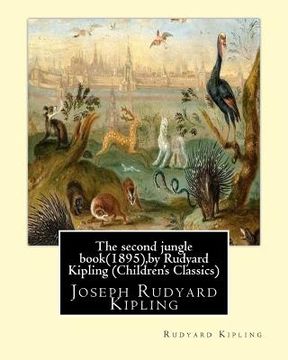
The second jungle book(1895), by Rudyard Kipling (Children's Classics) (en Inglés)
Rudyard Kipling (Autor) · Createspace Independent Publishing Platform · Tapa Blanda
$ 15.950
$ 26.580
Ahorras: $ 10.630
Elige la lista en la que quieres agregar tu producto o crea una nueva lista
Ir a Mis Listas¿Tienes una pregunta sobre el libro? Inicia sesión para poder agregar tu propia pregunta.
